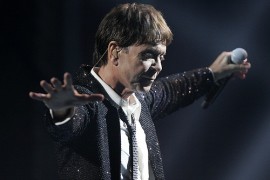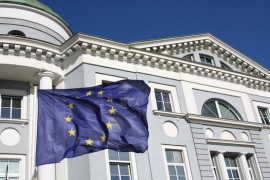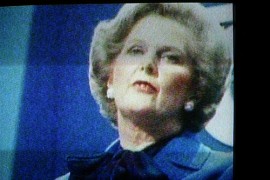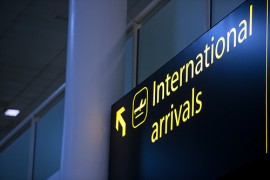The economical-with-the-truth Broadcasting Corporation – that’s the conclusion of a new report into BBC behaviour.
In response, the Corporation has brushed aside without even a flicker of acknowledgement the findings of one of the UK’s most senior policemen over their disgraceful conduct in vastly inflating the importance of the raid last summer by South Yorkshire Police on the home of Sir Cliff Richard.
This is despite the fact that former chief constable Andy Trotter, who retired in 2014 from his final role as head of the Transport Police, is one of the UK’s leading experts in handling the press. Trotter cut his teeth in this sector at the Ladbroke Grove train disaster, and at his retirement was the Association of Chief Constables’ lead on media relations.
On that basis, his credentials in terms of understanding the needs of the press and the delicate complexities in the flow of information from the police to the outside world are impeccable. They were honed in the white-hot crucible of deeply tragic events such as 7/7 and at the highest levels of policing.
Trotter was asked by the police commissioner in South Yorkshire to investigate the raid on Sir Cliff.
As I have previously reported extensively on TCW, the raid went ahead despite being based on the flimsiest of evidence, and – even more disturbing – in full collusion with the BBC who treated it as a major news event, complete with helicopter shots. The scale of the coverage conveyed the impression that the singer had been convicted of major crimes.
Leading human rights barrister Geoffrey Robertson, whose leftist sympathies would normally make him an ally of the Corporation, was so outraged by the BBC’s conduct that he described it as a ‘conspiracy to injure’ the singer.
The BBC’s response, of course- as it always is – was to deny with sullen insolence any wrongdoing. In their stance, they were unfortunately aided and abetted by the publicity-seeking Labour MP Keith Vaz, chair of the Commons Home Affairs Committee. He conducted an over-hasty inquiry with incomplete evidence and decided that the over-the-top elements of the raid were all the fault of the police.
Subsequent leaks of conversations between the police and the most senior BBC news management figures involved in the raid show that Vaz’s conclusions were nonsense – the BBC, in effect, conspired with the South Yorkshire cops to make it a no-holds-barred news circus, the impact of which was bound to damage and humiliate Sir Cliff to the maximum extent.
Trotter’s report on the events has not been formally released. It has been obtained as the result of a freedom of information requests and accounts are now available in the Yorkshire Post and the Daily Mail.
According to both, Trotter is deeply scathing about South Yorkshire police’s actions for breaking basic media-relations police rules, and says that officers should never even have even confirmed to the BBC that they were investigating Sir Cliff. The decision to work with the Corporation in planning the raid was therefore wholly wrong.
But his conclusions about the BBC are even more damning. According to the Yorkshire Post report, Trotter decided that the Corporation’s account of events simply does not add up. He believes they effectively conned the South Yorkshire Press Office into working them with them on the story by not being straightforward about their sources.
Of course, journalism is to some extent about wheeling and dealing and the darker arts of persuasion. But here, it seems, the BBC was hell-bent on nailing Sir Cliff – irrespective of the strength of the evidence – and therefore they conned the force into panic reactions. What happened subsequently has been described as ‘shocking collusion’ to besmirch the singer’s reputation.
Trotter has made six recommendations for change about how South Yorkshire Police should deal in future with press relations and all have been fully and instantly accepted.
The BBC, however, does not give a damn. Its response to his report is that Keith Vaz found no evidence of BBC misconduct or errors of judgment and therefore they have no response whatsoever to his allegations. That amounts to arrogant complacency.
In other words: Car crash? What car crash? BBC lawyers have, it can be guessed, advised Lord Hall and his senior management that if they admit anything, it will open the doors for Sir Cliff to claim very substantial damages. That could be on the cards.
But that’s not the point. The BBC Trustees are charged to ensure that in return for its massive public financing, the Corporation acts with integrity and the highest journalistic standards. As the full picture of BBC conduct in this sordid affair gradually unfolds it is clear that this is emphatically not the case. But not only that: they don’t give a damn about standards.
The Guardian, predictably, is trying to exonerate the BBC for the way they behaved by splitting hairs over the implications of what the Trotter report actually said– but the overall facts speak for themselves. This was disgraceful conduct.











